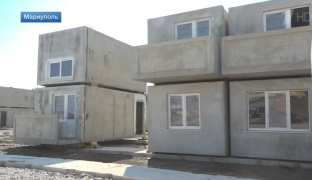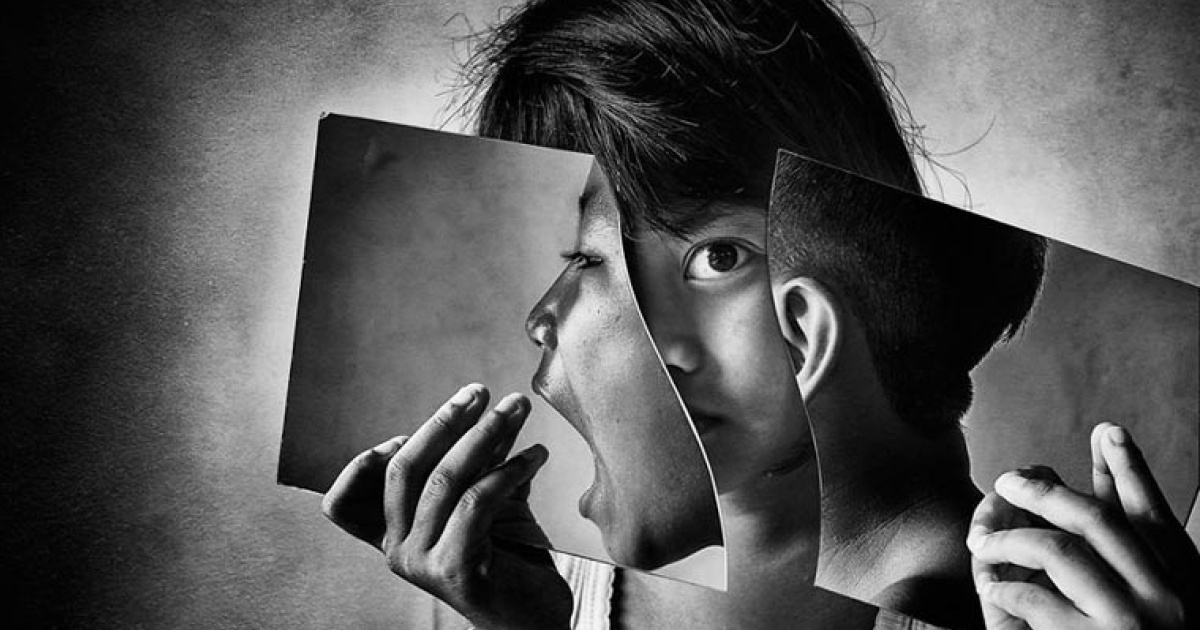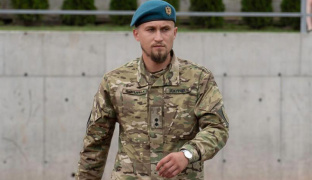The most vulnerable category of the population to propaganda is children. Their unformed psyche, lack of life experience, and often limited intellectual development make them easy prey for adults instilling any ideas.
Totalitarian regimes particularly excel in this area. On a state level, children and teenagers may not be explicitly encouraged to take selfies on a dangerous edge. However, and this is no less horrifying, they are raised with a false sense of patriotism deeply rooted in hatred for enemies, not necessarily of the state but of its ruling elite.
In the case of the younger generation in territories of Ukraine occupied by russia, such practices take on particularly grotesque forms. The kremlin’s propaganda molds Ukrainian youth into patriots of a foreign country while cultivating hatred for their historical homeland. Similarly, during the Ottoman Empire, Christian children taken from their parents were turned into Janissary military formations – ruthless persecutors of Christianity, zealous defenders of Islam, and loyal to the empire that enslaved them.
Always ready!
The system of manipulating children and youth was perfected during the USSR era: first-graders became "octobrists", third-graders joined the pioneers, and by age 14, joining the Komsomol was considered proper decorum. Virtually no one, except the most notorious troublemakers and juvenile delinquents, escaped the "attentive care" of the Communist Party. This framework, significantly modernized, has been employed by russian political commissars and implemented in occupied territories of Ukraine.
Let’s start at the top of the pyramid. This refers to the "Young Guard", whose official name clearly identifies it as the youth wing of russia’s ruling United russia party. Nominally, membership begins at age 14, though there is no upper age limit, so roles often go to much older individuals. In the occupied territories of Ukraine, the activities of the "Young Guard" focus on aggressive promotion of United russia’s aid to the residents of the "new regions" and participation in various ceremonies. "In 2024, the Donetsk branch of the 'Young Guard' of United Russia in the DNR... organized 35 large-scale events, including forums, concerts, the 'Candle of Memory' campaign, blood drives, and sports competitions. Particular attention was given to laying flowers at the memorial 'To Your Liberators, Donbas'", - the "Young Guard" boasted.
A step below the "Young Guard" in age and status is the "Movement of the First" - essentially a near-exact clone of the Soviet pioneer organization, complete with octobrist squads. Children as young as six are accepted, and they are "dismissed" after finishing school or college. However, according to the charter, one can remain a member of the "Movement of the First" until the age of 25, with adult "pioneers" serving as mentors and organizers of propaganda events – in other words, as the new party elite.
Since 2024, the organization has been led by Artur Orlov, a former participant in the "special military operation", who was awarded the title of "hero of russia" for killing Ukrainians. The kremlin allocates approximately 20 billion rubles (USD 187 million) annually to fund the organization, nearly a quarter of which goes to maintaining the central apparatus.
Naturally, the nationwide experience of ideological indoctrination of youth is actively being transferred to the occupied territories. However, there are specific nuances: while in russia, following the old Soviet tradition, the focus is on mass participation, with around 7 million people reportedly coerced into joining the "Movement of the First" – in the "new regions", activists serve as propaganda brigades. Their mission is to incessantly convince their peers that "russia has always been here and will remain forever".
In the "DNR", for example, fewer than 4,000 people joined the pioneers in 2024. Nevertheless, russian propaganda made every effort to ensure their visibility and to make membership in the movement appealing. For the "new russian" youth, numerous military-patriotic centers were opened last year. "The main goal of the project is to prepare a reserve from among promising youth who are committed to the values of the state. To achieve this, a new system of military-patriotic education has been developed, providing optimal conditions for youth to cultivate loyalty to the Motherland and readiness to serve society and the state", - openly stated Donetsk officials of the movement regarding the tasks assigned to them. For the "pioneers", a football tournament was also organized, and as the cherry on top, they were treated to a "small victorious war". "The flagship project Zarnitsa 2.0 continued the traditions of the Soviet-era game, adapting it to modern realities. This year, the project covered all cities and districts of the DNR...", - reads the annual report.
All these events are widely covered in local media, with publications accompanied by vivid photographs showing teenagers joyfully firing real assault rifles, marching, and standing in honor guards, wearing uniforms that provoke envy among others. These uniforms are adorned with the branding of the aggressor state and are designed for all occasions – seasonal wear, parade uniforms, sports attire, and, of course, military-style outfits.
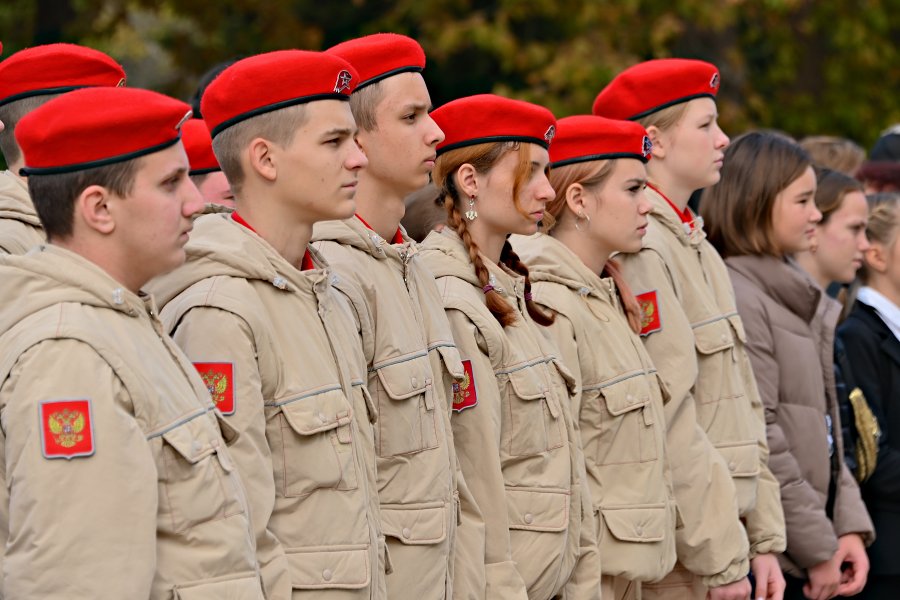
Additionally, the "Movement of the First" members receive rather appealing incentives in the form of gifts and exciting trips across russia (to moscow and St. Petersburg) or to occupied Crimea.
But the leader of the "LNR", Leonid Pasechnik, decided to outdo everyone else by introducing an "educational" program in the Luhansk oblast called "Luhansk Character". "We decided to use the best practices of the Soviet education system", - he declared.
Younger schoolchildren were instructed to join the "Orlyata-Septemberata" – "in honor of the day of the reunification of the new regions with Russia on September 30". Middle school students were named "Pioneers of the Luhansk People's Republic". For tenth graders, the honorary title of "Worker" was introduced. In the "DNR", a similar version of the "octobrists" appeared, though without the same level of fanaticism and absurdity as in the Luhansk oblast.
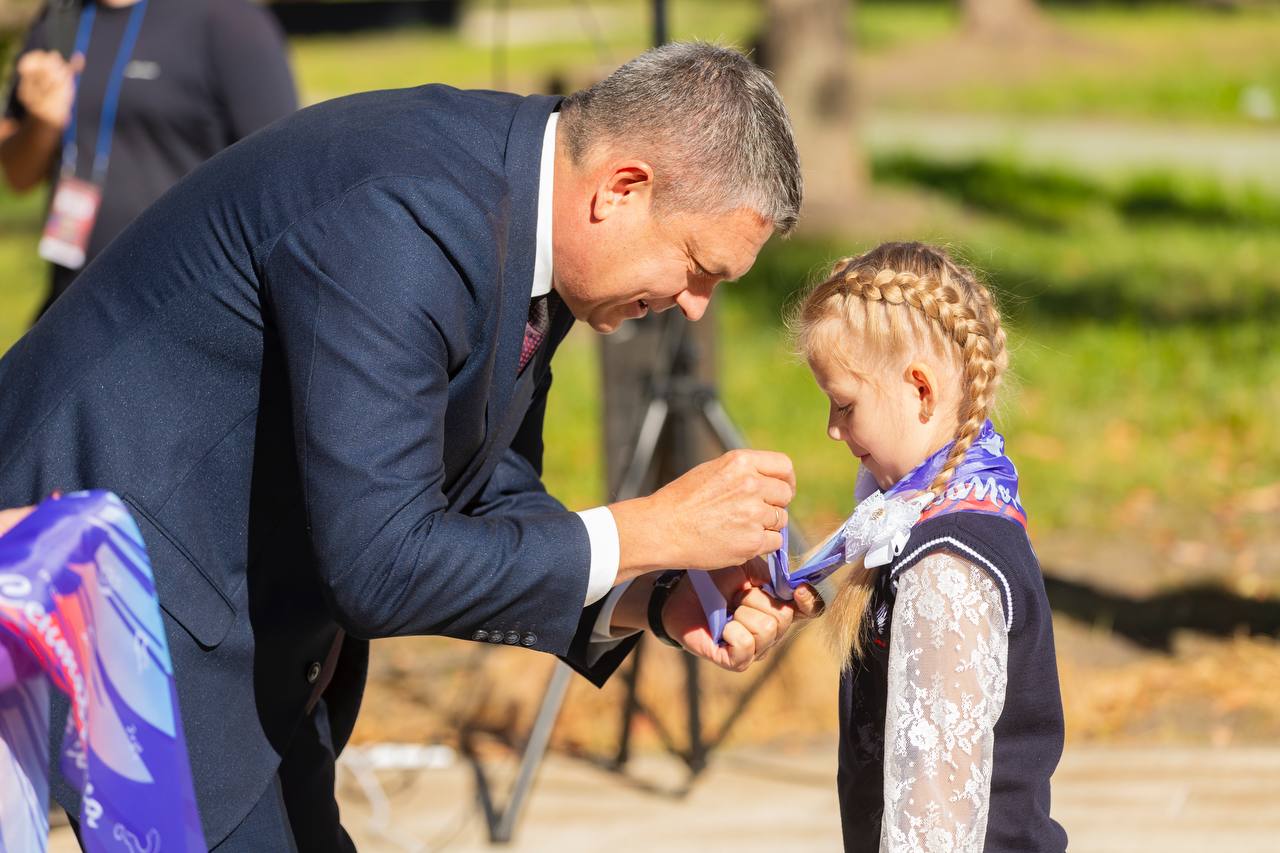
One of the most significant focuses of the "political-educational" work with youth in the occupied territories of Ukraine is their militarization.
For instance, in Donbas, "republican" branches of russia's "Youth Army" (Yunarmiya), a military-patriotic movement, are actively operating. These branches are tasked with "developing positive motivation among young people to undergo military service and preparing boys for service in the Armed Forces of the russian Federation". It is not unlikely that the leading roles in this militarized organization are played by the functionaries of the previously mentioned "Young Guard" and "Movement of the First". In news reports about propaganda campaigns – honor guards, the unveiling of memorial plaques, laying flowers at monuments – the names of these structures, nominally subordinate to different "kremlin towers", are often mentioned together. Their bright and impressive uniforms also appear to be tailored by the same designer under the Ministry of Defense of the russian Federation.
The cultivation of pro-russian Janissaries from Ukrainian youth is also supported by the establishment of so-called cadet schools in occupied Donbas. These are no longer mere "war games" but actual junior military academies for students starting from the 5th grade. Graduates of these "educational" institutions do not receive military ranks but are actively prepared for military service. In most cases, students are enrolled on a full or partial boarding basis, meaning they spend most of their time in a barracks-like environment.
In occupied Luhansk, these cadet schools are referred to as "Cossack Corps". They operate in Luhansk, Alchevsk, Starobilsk, and Kreminna. In the Donetsk oblast, the most well-known institutions are the Cadet Corps named after the first leader of the "DNR", Alexander Zakharchenko, and a branch of the Nakhimov Naval School in Mariupol.
Students of these schools play a significant role in promoting the "russian world" and russian militarism in the non-government-controlled territories. Local media frequently feature numerous photo reports of ceremonial formations held to mark the taking of oaths.
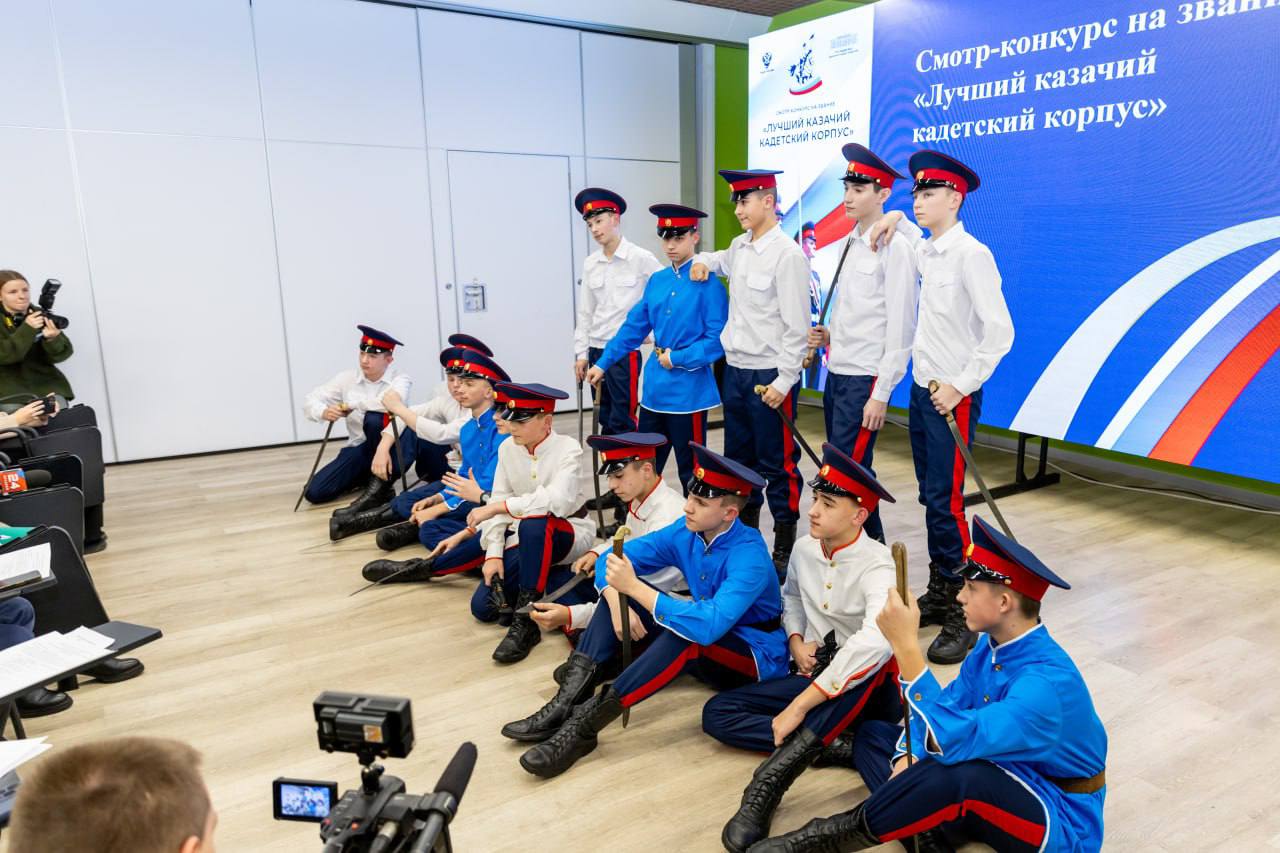
And, of course, Ukrainian children enrolled as cadets are being steadily molded into future soldiers for the russian army. The leader of the "LNR", Leonid Pasechnik, openly acknowledges that such education system "instills discipline and resilience in young people… Many graduates of the Cossack Corps go on to enroll in (higher – OstroV) military academies and become officers. Today, our country especially needs such young people, sincerely loving their homeland and ready to defend it", - praised the Luhansk cadets Leonid Pasechnik.
When there isn’t enough funding to open full-fledged cadet schools, a "light" version of militarized education is implemented in the "DNR/LNR". For example, in many schools across Donbas, nearly all law enforcement agencies of the aggressor state establish specialized classes. Recently, for instance, Luhansk announced the recruitment of students for a "police class".
The framework here is standard: russia's Investigative Committee, Rosgvardiya, Ministry of Internal Affairs, FSB, and Ministry of Defense provide groups of students with striped shirts, berets, and other attributes of "true defenders", effectively setting them apart from the rest of the "civilian" student body.
Russian manipulators of consciousness haven’t overlooked preschool-age children either. Incidentally, this is the most impressionable age for instilling any ideas – most of these kids have never lived under Ukraine but have heard and continue to hear only negative things about it daily.
There are no special kindergartens or specialized groups for Ministry of Internal Affairs or Airborne Forces yet. However, groups of "little Cossacks" are being opened. For example, in one kindergarten in occupied Luhansk, the administration decided to convince children that they are heirs to the traditions of the Don Cossacks. "We were inspired to organize such a group after attending a seminar at a kindergarten in Novocherkassk and decided that in our time, patriotic education is very relevant", - boasted Elena Karelskaia, deputy head for educational and methodological work. Five-year-olds were dressed in trousers with stripes and russian traditional dresses, made to sing and dance "Cossack-style", and, of course, take an oath of loyalty to their "newly acquired homeland".
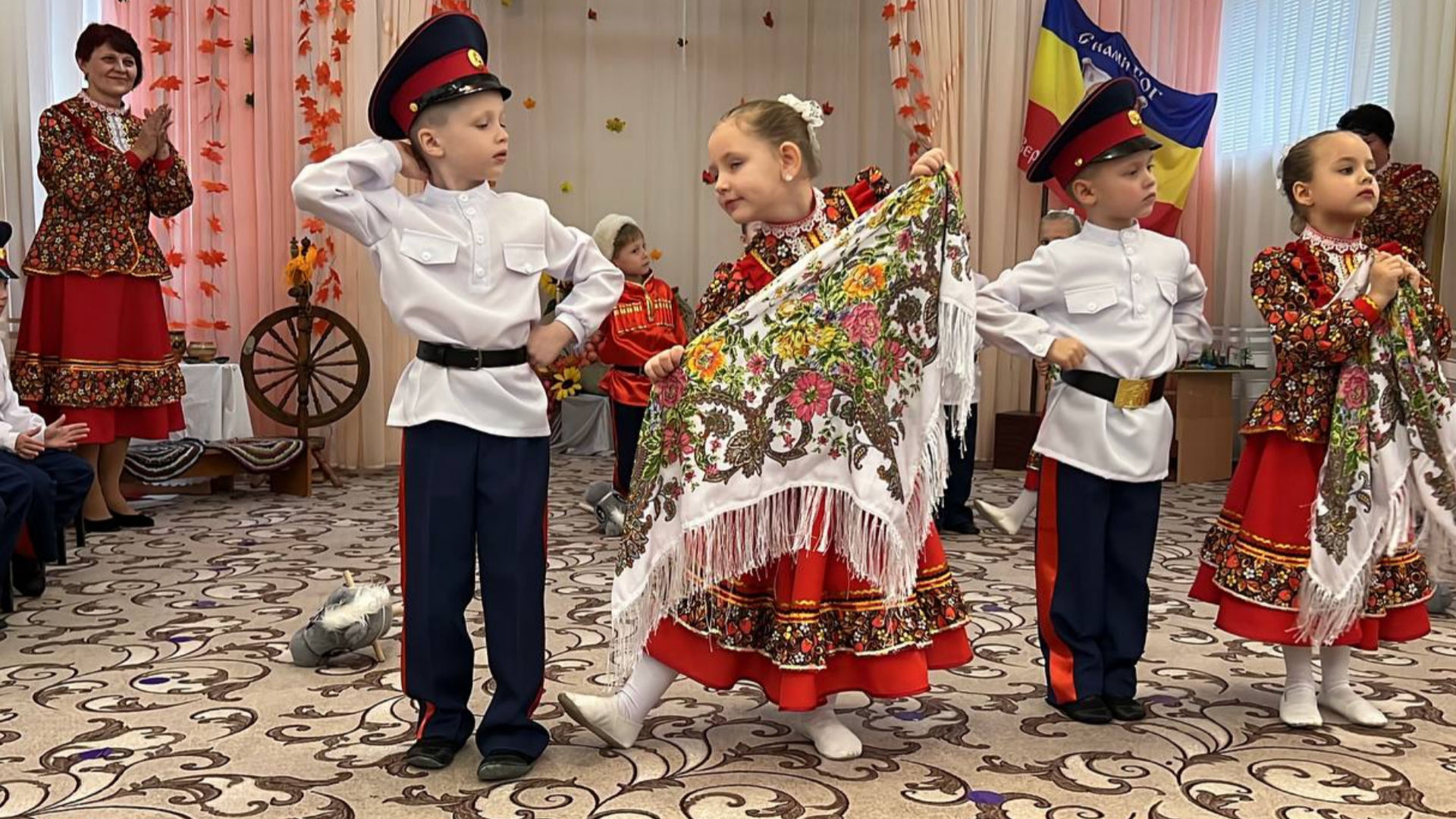
An obligatory element of political and educational work in kindergartens includes holding various festivals and concerts like "Dance and Sing, My Russia".
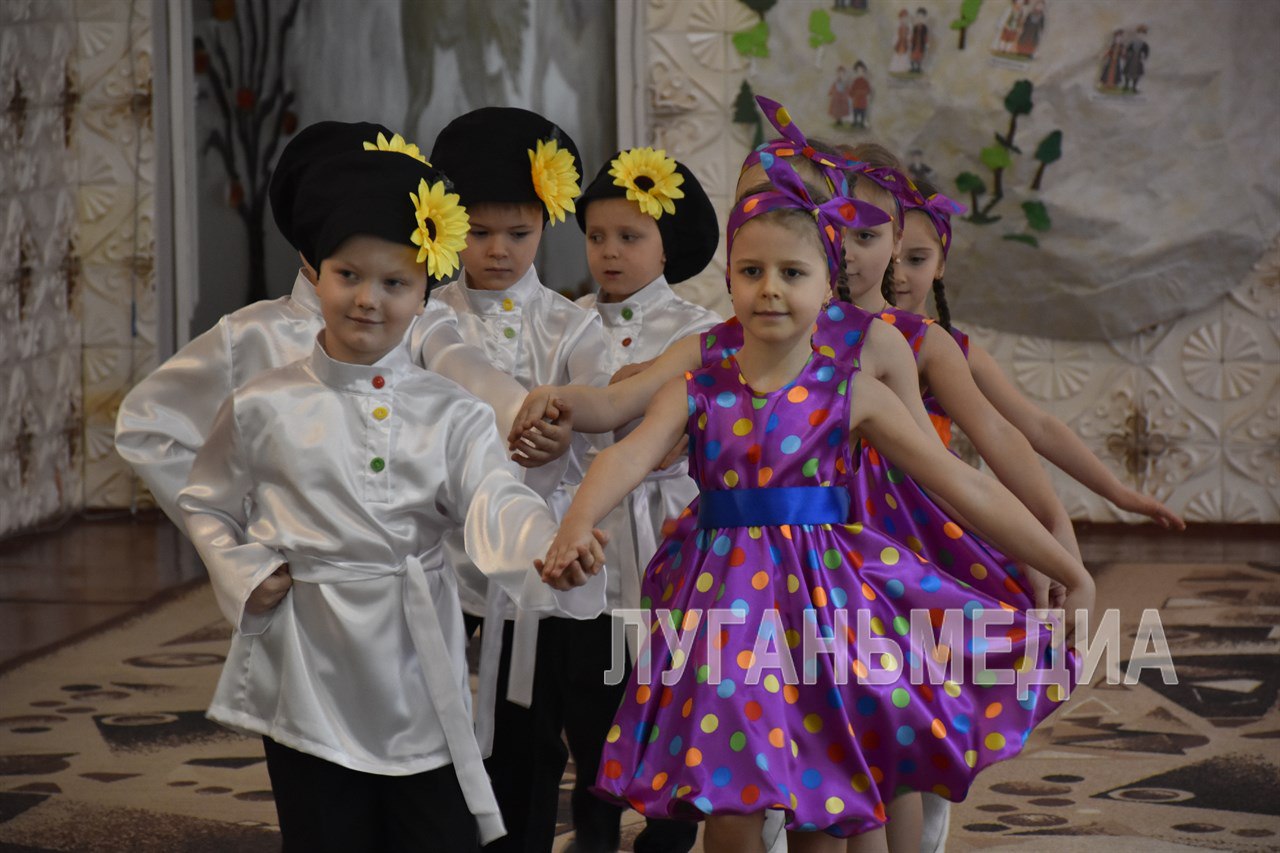
Meanwhile, despite the elaborate staging and powerful PR, there aren’t as many of these theatrical activists in occupied Donbas as it might seem. According to "official" information, there are only 5,000 members in the "Young Guard" in the "DNR" and around 12,000 in the "Movement of the First". As for the "Septemberites", "Orlyata", and other "little Cossacks", they are not worth counting yet – they still barely understand what is happening and what games adults are involving them in.
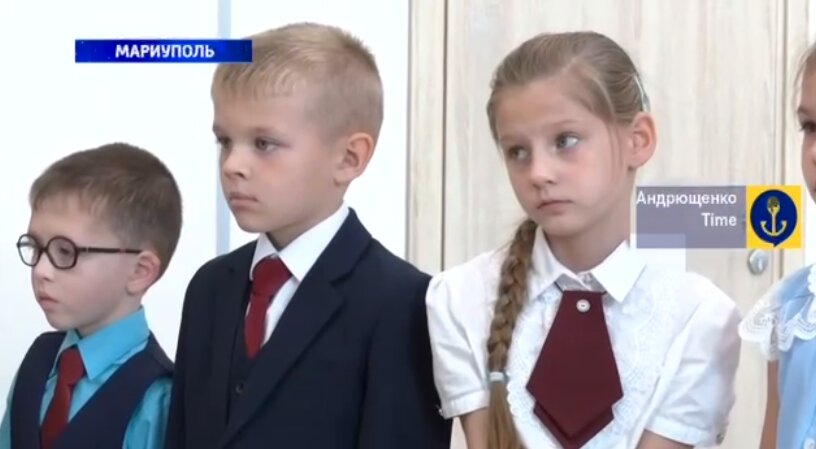
As for the relatively mature "new russians", they are likely a sort of showcase for the youth movement, the "russian world", and "russian military might". Behind the façade of beautiful costumed parades, wreath-laying ceremonies, festivals, and conventions lies a massive number of ordinary teenagers, boys, and girls. These are not covered by local media unless in the crime section.
It turns out that ungrateful high schoolers are smashing school furniture donated by "sponsors" to "renovated" schools in Mariupol. In occupied Yenakiieve, unruly girls mock the eternal flame, using it to light cigarettes and burn wreaths laid by peers in their pristine uniforms.
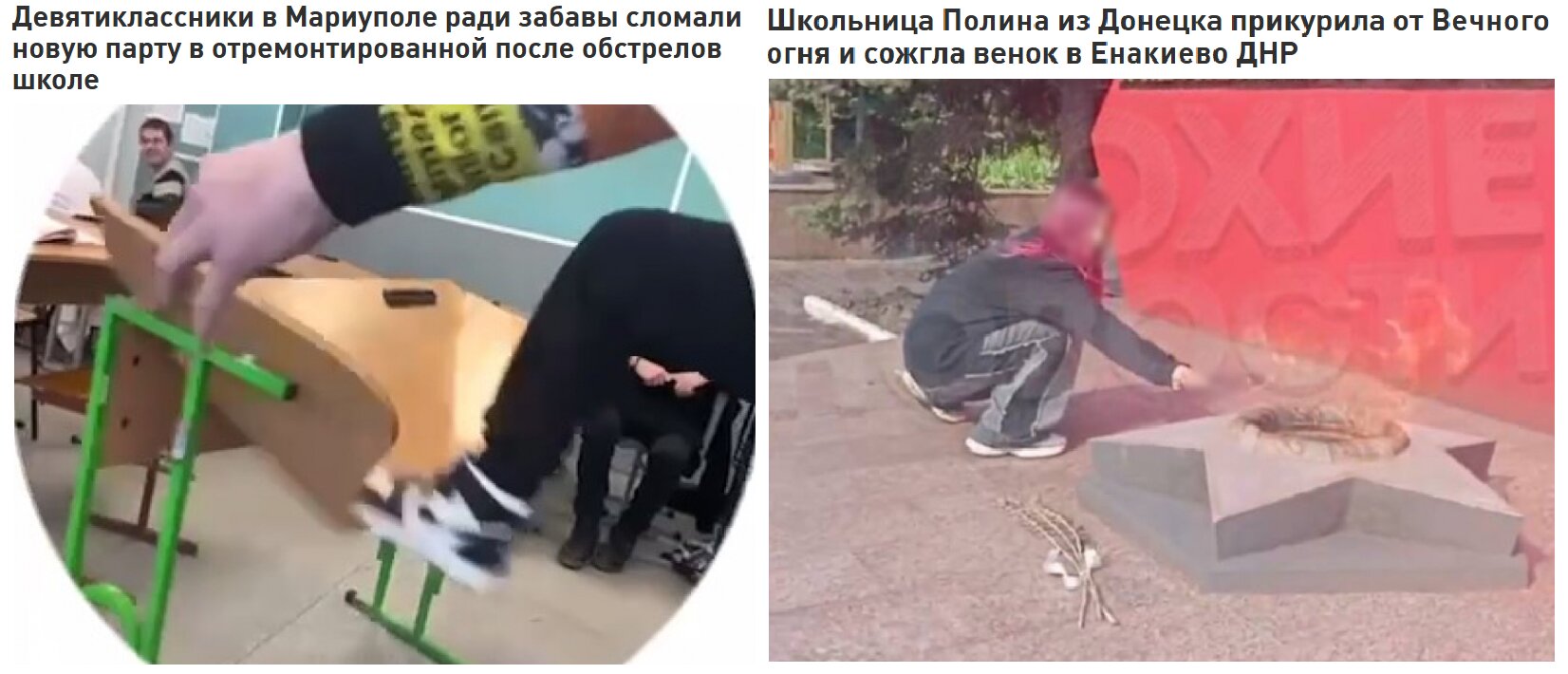
Naturally, in the apolitical or sometimes destructive behavior of most youth in occupied Donbas, pro-russian propagandists blame... Ukraine. "The Ukrainian side... is trying to recruit children for terrorist activities through the internet", - complain local law enforcement and educators.
In October, the "DNR" launched a campaign to identify young people dissenting from the lifestyle imposed by russian propaganda. The occupation police reported registering 263 teenagers and prosecuting 161 underage "radicals". Of these, 48 children (!) were sent for forced psychiatric treatment…
By Yurii Bovkh, OstroV


